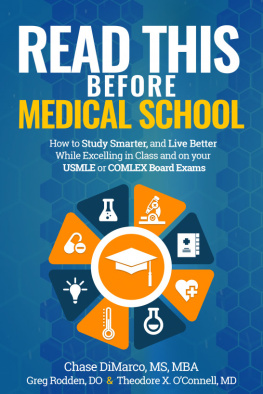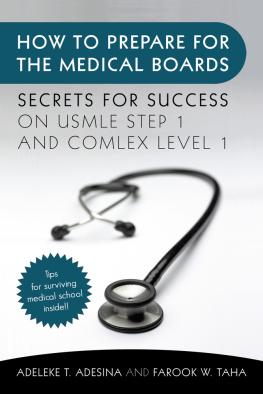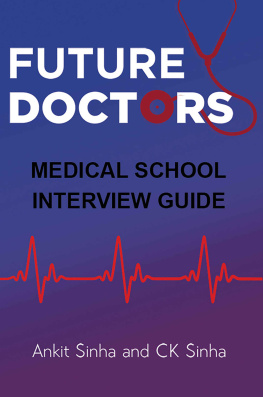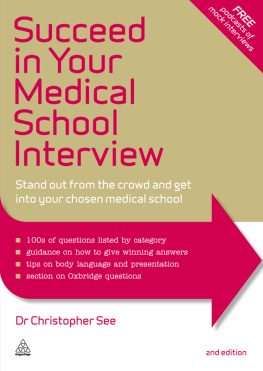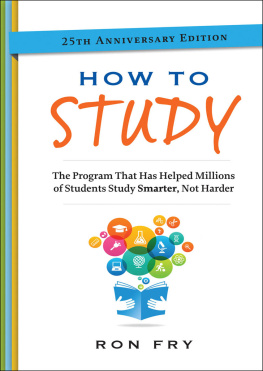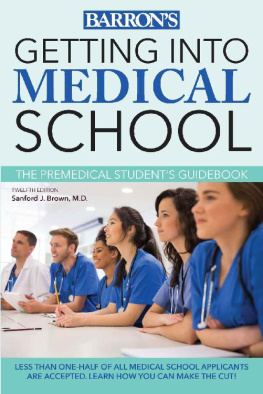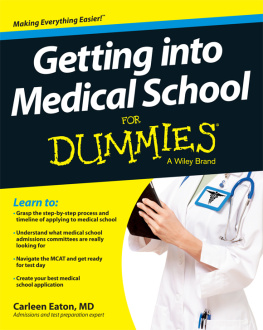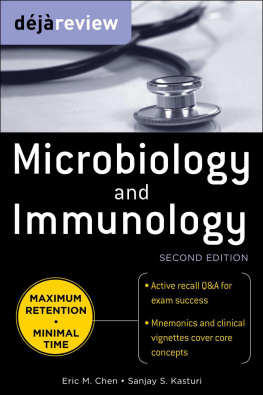Read This
Before MedicalSchool
How to Study Smarter andLive Better While Excelling in Class and on Your USMLE and COMLEXBoard Exams

Copyright 2019 by ChaseDiMarco
Published by Indies UnitedPublishing House, LLC
All rights reservedworldwide. No part of this publication may be replicated,redistributed, or given away in any form without the prior writtenconsent of the author/publisher or the terms relayed to youherein.
Published October2019
ISBN13: 978-1-64456-072-3
Library of CongressControl Number: 2019950745

Indies United PublishingHouse, LLC
P.O. Box 3071
Quincy, Illinois62305-3071
www.indiesunited.net
Table ofContents
Organize What Youve Read
About the Authors
Chase DiMarco: Chase is an MS, MBA-HA and MD/Ph.D-candidate. Heis the Founder and educator at FreeMedEd, which he began in 2014 toconsolidate free educational resources for his classmates. He alsohosts the Medical Mnemonist Podcast, is Chief Development Officerat InsideTheBoards, and CEO of MedMatch Externships clinicalrotations service. He has explored many facets of medicaleducation, the psychology of learning, and accelerated learningtechniques. As an average student, it wasn t until after he had attainedgraduate education that he learned to implement acceleratedlearning and educational efficiency. Now, with a passion to makestudying easier for all students and bring great educationalresources to the masses, he has worked to compile some of the topliterature out there on Educational Psychology, Academic Medicine,and Memory.
Theodore X. O Connell : Ted is a family physician, educator, and author of manypopular books, including the Crush Step series and the USMLE StepSecrets series. He is the founding director of the Family Medicineresidency training program at Kaiser Permanente Napa-Solano and isan Associate Clinical Professor in the Department of Family andCommunity Medicine at the UC San Francisco School of Medicine. Dr.O Connellis passionate about helping the next generation of physiciansbecome successful, both as clinicians and as future professionalswho can confidently navigate medical culture. He hopes hiscollective works will help cultivate outstandingphysicians.
Greg Rodden: Greg is a pediatrics resident in Austin, TX, andfounder of the Med School Phys podcast. Now he is hosting a newpodcast called Physiology by Physeo, which is one of the newestcollaborations powered by InsideTheBoards. Whenhe s notbeing a doctor for kids, he tries to stay happy and healthy byplugging in his headphones while at the gym, or by leisurely diningwith his wife. Greg is dedicated to providing high-quality, freemedical education to anyone who is willing to learn.
PREFACE
How to Use this Book
First off, thank you for choosing to read this book. Youwill not regret it. We will provide you with a vast array ofsuggestions for studying, tools we personally used to excel inmedical school, tips for self-advancement, and guidance to keep youon the path to success. This is not simply a medical study resource, butrather it is a guidebook filled with wisdom and pearls abouteverything related to your future career in medicine.
Some books will teach you how to make flashcards, some havetips for test-day, while others focus on efficiency and scheduling.This book incorporates all of those topics, and more! To scratchthe surface, we will give you a tried and true approach to tackleboard exam-style questions, tips to accelerate your learning speed,and advice on how to use flashcards, while also covering topicslike burnout prevention during this challenging time in your life.There is currently NO OTHER resource that offers this muchinformation, assembled together in one place, and without thefluff.
If you are already aware of some of the concepts discussedthroughout, you ve got a big headstart and we will help you to optimizeyour existing strategies. If it all seems new, dont worry. Wellexplain everything in detail and provide concrete examples to helpyou get started. Discovering these kinds of learning techniques andstrategies is probably best before you start medical school, buteven if youve already begun classes, dont be discouraged. Theresno time like the present!
We aim to provide you with a no-nonsense guide to success inmedical school and beyond. As such, we have researched, analyzed,and synthesized dozens of top-rated books, hundreds of researchpapers, and years of experience in medicine and education to createan excellent product. It would be impossible for us to perform asystematic review of every subject we cover, but we gave it ourbest shot.
Regardless, it s healthy to question everything you see, hear,and read these days (without being a contrarian). Remain reasonableand open-minded if you encounter something new here. We urge you toexperiment, record the results, reassess, rinse and repeat. Whenyouve found something that works, we urge you to engage inDeliberate Practice to maximize your results. But lets not getahead of ourselves; this is just the introduction.
If you have already skimmed through the Table of Contents, youmay have noticed the overarching structure of this book, which isbroken up into four main parts:
Part 1: Overview of Study Skills & Work-LifeBalance
Part 2: Test Preparation and Exam Day
Part 3: Accelerated Learning and Mnemonics
Part 4: Self-Assessment
Considering how much content we cover, you should not feelobligated to follow along section-by-section. Some areas may be ofgreater relevance to you right now, while others can take a backseat. Jump around as needed. For updates and new information, wealso offer a Next Steps section in Part 4 that provides concrete examplesfor implementing the topics discussed. We thank you for yoursupport, and hope you enjoy the book.
Occam s Razor vs.Hickam's Dictum
Advising learners on something as complicated as medicaleducation is tricky. No two students are the same, so we need to beflexible when providing advice about the approach to learning, thebest resources, and the study habits to reinforce. Ultimately, youhave to find what works for you. One topic might be learned best bya familiar or obvious method, while another lesson may requireuncomfortable or outside-the-box thinking. This is a sort of Occam s Razor vs. Hickams Dictum situation for your medical education wherethe simplest solution is the best until it isnt.
Herein, we attempt to provide a wealth of differentrecommendations and educational strategies that you can explore. Itwill require you to spend a little more time upfront to determinewhat works best for you. A word of caution: you will be tempted tofirst choose the method that you LIKE best, but keep in mind thatit may not be the method that WORKS best for you. This is where anopen mind and honest self-assessment will really show their value.Throughout the text, we encourage regular self-assessment and weprovide plenty of concrete examples to see how you can gauge yourperformance.
A Doctor sTimeline
Before diving into how to thrive in medical school, weshould probably lay out the timeline for you. What will your lifelook like when going through your medical training? Obviously,there will be variations on this theme, but here s the basic timeline forsomeone who goes straight from undergrad to attendingphysician:
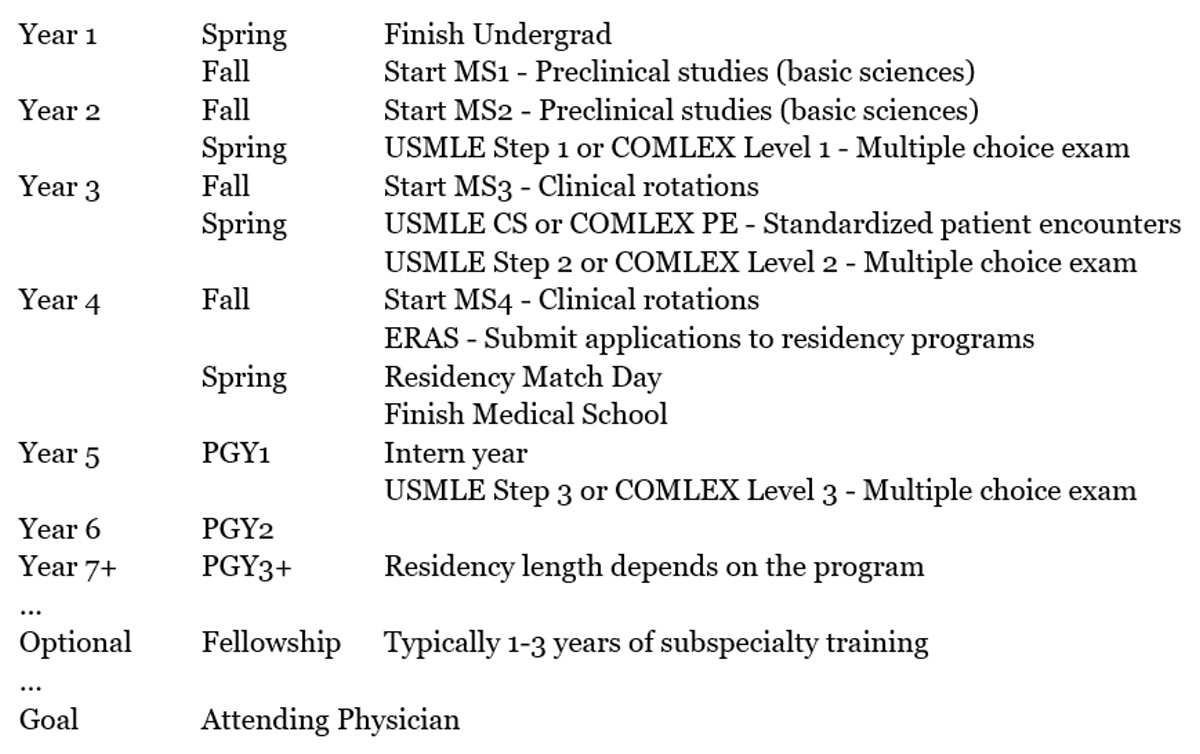
Next page
